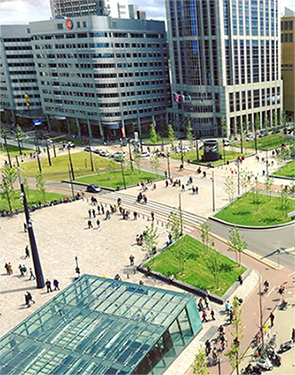With rising incomes, aging infrastructure, and effects of climate change, rapid urbanization is increasing demand for quality and affordable services in cities. This places more pressure on energy supply systems, which in turn has financing, budgetary, environmental implications. Improving the energy efficiency of cities not only helps to save energy and reduce emissions, but also can help budget-constrained cities expand and improve services and increase competitiveness. For example, improving public transport not only lowers energy consumption, but also reduces congestion and pollution, and increases people’s mobility – which is especially critical for people in the bottom 40% of income levels who need access to jobs, schools and public services.
While local and global efforts have been making progress on energy efficiency in city services, critical challenges still remain.



